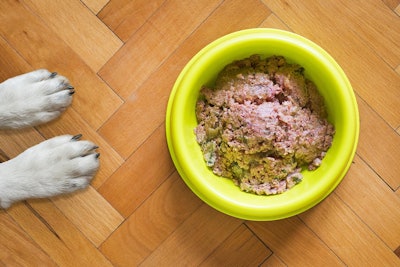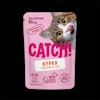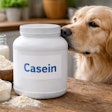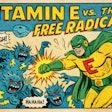
Texas A&M University reports new research from the Dog Aging Project has found that the vast majority of homemade dog diets fail to meet basic nutritional requirements, raising concerns about the growing trend of home-prepared pet food.
The study, published in the American Journal of Veterinary Research and reported on by Courtney Price with Texas A&M's College of Veterinary Medicine and Biomedical Sciences (VMBS), assessed the nutritional completeness of 1,726 homemade diets based on ingredients and preparation methods provided by dog owners.
"We found that only 6% of homemade diets had the potential to be nutritionally complete," said Dr. Janice O'Brien, a doctoral researcher at the Virginia-Maryland College of Veterinary Medicine at Virginia Tech. "Since our study didn't include exact ingredient amounts, it's possible that a smaller percentage than 6% were nutritionally complete."
The Dog Aging Project, a collaborative initiative led by the Texas A&M College of Veterinary Medicine and Biomedical Sciences and other institutions, collected diet information through open-ended survey responses from owners of more than 50,000 enrolled dogs. Researchers entered the diet information into Balance It, an online formulation tool compliant with both FDA and Association of American Feed Control Officials (AAFCO) recommendations for canine nutrition.
Understanding a canine's complete diet
The researchers emphasized the responsibility involved in home-prepared diets, noting that pet owners who formulate dog food at home should work with a board-certified veterinary nutritionist and follow the diet exactly as prescribed, as no ingredient should be considered optional.
The research highlighted how ingredient substitutions can compromise nutritional adequacy. For example, different types of oil can alter nutritional completeness, and omitting common additions like calcium supplements can cause health problems.
Imbalanced calcium and phosphate levels, for example, can lead to bone health problems and kidney problems. Dogs with existing illnesses face even greater health risks from nutritionally incomplete diets, as unbalanced formulations can exacerbate disease symptoms.
The researchers also emphasized avoiding ingredients unsafe for dogs. Grapes can be toxic to dogs, while whole bones pose risks because dogs can end up with sharp bone fragments in their stomach.
For dog owners pursuing homemade diets, the authors recommended consulting with a veterinarian about specific dietary needs, working with a board-certified veterinary nutritionist to develop formulations, and sending samples to food testing laboratories for long-term feeding programs to ensure recipes remain precise.
















